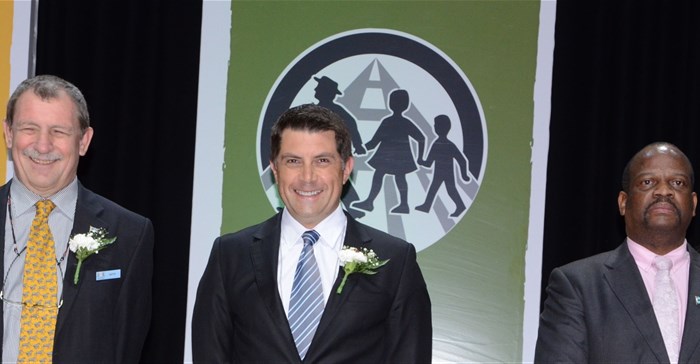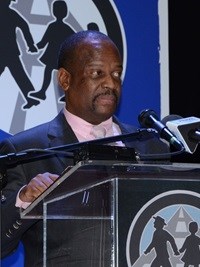
The keynote speaker was Russell White, CEO of the Australian Road Safety Foundation, who drew parallels between Botswana and Australia in the 70s, when it too had exceptionally high fatalities. The interventions that have led to its current low rates included improving vehicle design standards and safety, standardising road rules across national and regional authorities, introducing compulsory seat belt use for front and rear occupants, heavy police enforcement of the no drinking and driving laws and community action to achieve buy-in.
"To lead cultural change, requires high-quality data to identify 'hot spots', improving road standards, training at both school and the workplace and a commitment to shift paradigms of road users.
"One of the most successful movements in Australia has been the introduction of 'Fatality Free Friday'. The idea is to have one day in which there are no deaths on the road, normally about 5-6 deaths. We believe that if drivers are asked to actively concentrate on road safety and safe driving for just one day in the year, they will drive safer for the next few days too and, over time, change their outlook completely, consciously thinking about safety every day they get behind the wheel.
As the HIV/Aids campaign made attitude and behavioural changes, so too road safety must achieve this goal. There is an opportunity here for leadership and partnership to take the helm and achieve the UN goals. As we said this year at Fatality Free Friday, 'the key to road safety is in your hands.'"

Key to the success of the conference was that this was not solely a government conference but saw considerable input from the private sector and civil society from inception to conclusion. The Botswana Police Service, Debswana Diamond Company, Department of Road Transport and Safety, G4 Consulting Engineers, the Motor Vehicle Accident Fund, Premiere, SSI Botswana, the UN and the World Health Organization joined the Botswana Ministry of Transport and Communication as partners in the event.
This convergence of stakeholders meant that all delegates pledged action and commitment towards finding solutions to the problems of road accidents in Botswana, thus ensuring full compliance to the effective implementation of the UN global plan by 2020.
• Pillar 1 will establish an independent Road Safety organisation, charged with carrying out policy decisions on road safety, to be in place by the end of 2016; it will also review current legislation
• Pillar 2 will work on increasing liaison between the private and public sector on the holistic planning and designing of national and urban roads and planned maintenance of these roads
• Pillar 3 will review the current vehicle roadworthiness tests and create a spot-check system to improve roadworthiness. Similar checks are required on public transport carriers, freight carriers and even animal-drawn vehicles.
• Pillar 4 - will create and disseminate social media messages to change road user behaviour, at the same time encouraging stronger policing presence in high-speed area and taverns.
• Pillar 5 will establish an Advisory Board by 31 March 2016 to create national trauma response system, based on a London model

The Minister of Transport and Communication, Tshenolo Arithur Mabeo, emphasised that though the number of deaths per annum (323 in 2014) may seem low, a majority of this figure is among the youth of the country.
"Careless drivers are still the number one cause of road traffic accidents. Whilst most other causes - animals on the roads, vehicle defects, driver fatigue, pedestrian error, etc. show small decreases, worryingly the 2014 statistics show a growing increase in accidents, as a result of drivers under the influence of drugs and/or alcohol, unlicensed drivers and weather and road surface conditions. Confirmed fatalities in the period Jan-mid October 2015 stand at over 315 by comparison to 262 for the same period last year, an approximate 20% increase and the festive season approaches, which is traditionally a bad time for accidents.
"Our human resources are an important and highly valued asset - much of government's resources are spent in educating our people and keeping them healthy from disease only to have their lives devastated by an entirely preventable road accident. Prevention of accidents is key and I urge you all here to put your considerable abilities together to find ways of reducing road accidents."
"This Symposium, with its theme of 'Effective Partnerships for Road Safety', is exactly what we need to be able to address the road safety issues in a systematic, structured and inclusive manner," he concluded.